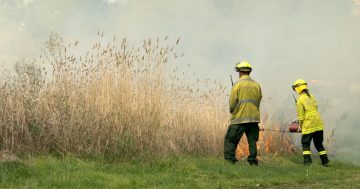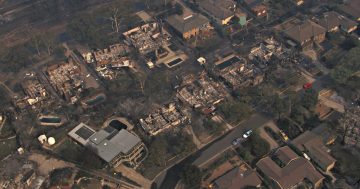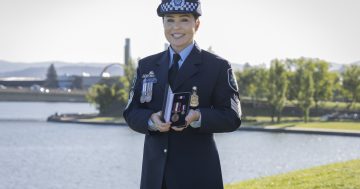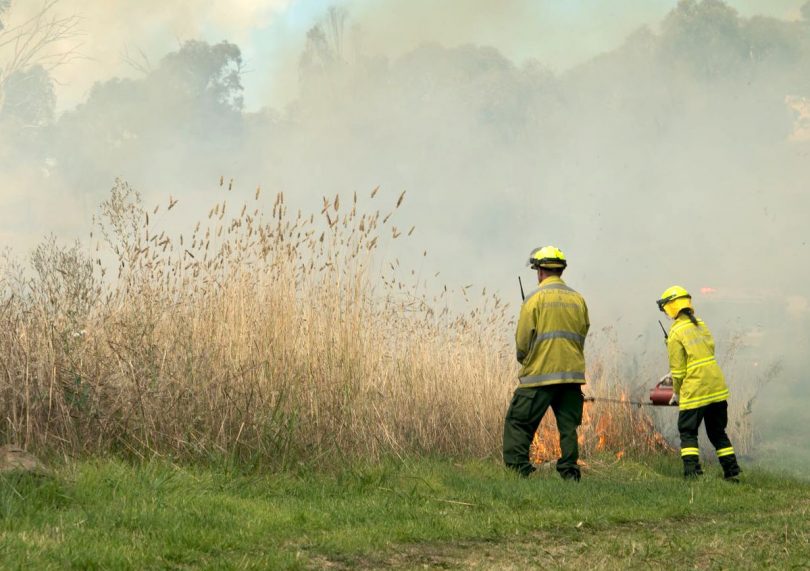
The Committee recommended the use of prescribed burning to help reduce the risk of bushfire in suburban areas. Photo: ESA.
Damaged trails and tracks, a build-up of fuel loads and the impact of climate change are increasing the risk of severe bushfires in the ACT, an inquiry has found.
A Legislative Assembly committee, chaired by Labor MLA Dr Marisa Paterson, investigated the capital’s bushfire preparedness and recommended that the government step up prescribed burning efforts and double the annual funding level for the maintenance and management of fire trails in our national parks.
While predicted above-average rainfall this Spring means we are unlikely to have a high-risk summer, several experts who gave evidence to the inquiry warned against complacency.
“People are planning on a normal fire season rather than a severe one, but it only takes one or two bad days when a fire starts in areas of dry grass, and it will move into the city quickly; we’ve seen that before … you need to be prepared every year,” said Dr Tony Bartlett, a forestry fire management expert who gave evidence to the inquiry.
Dr Bartlett was pleased with the Committee’s final report, which backed his recommendation to address the deteriorating state of trails and tracks, many of which have not been repaired after damage by La Niña weather conditions.
“This is important as you need rapid access to remote areas during a fire, you can’t always rely on aircraft. You need people on the ground,” he said.
“Also, if you can’t control the fire when it’s small, you need a good existing track network to use as the boundaries to burn out a bigger area to get it under control; you need to prescribe burning and have the vegetation along those strategic tracks managed in advance of a fire … it’s critical that this work is stepped up.”
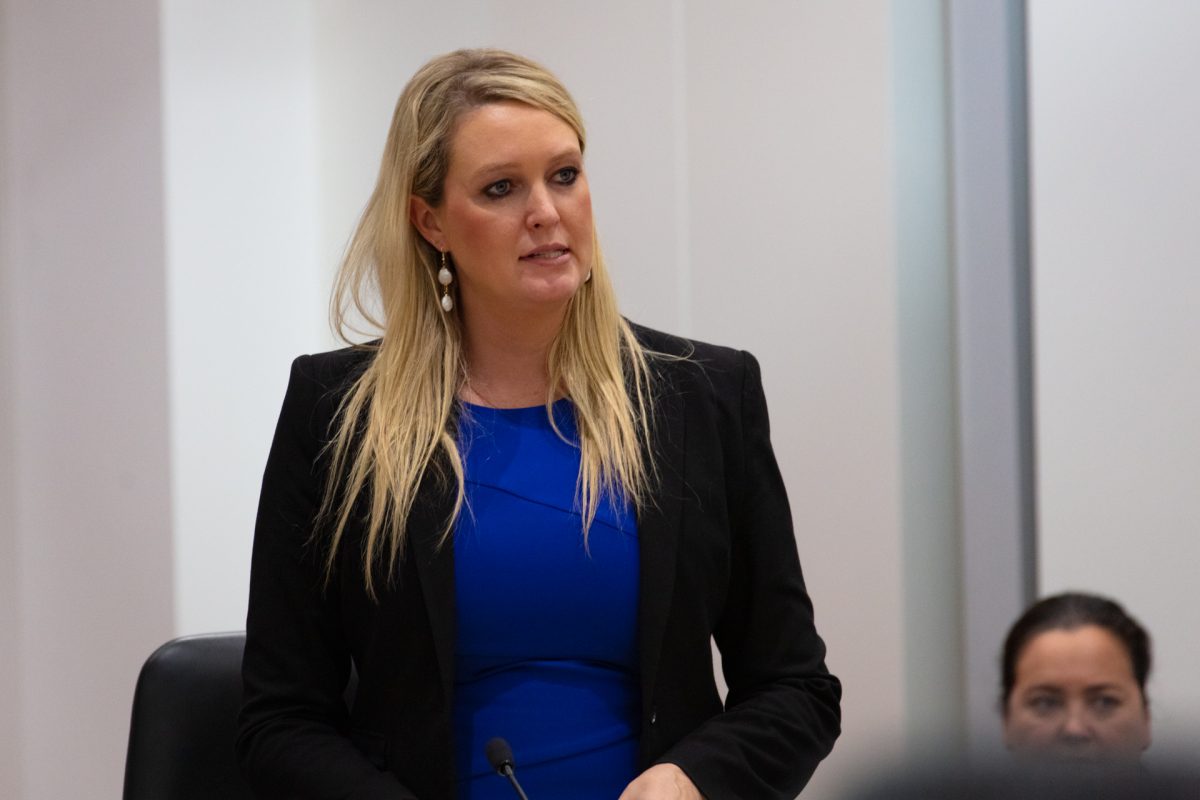
Dr Marisa Paterson chaired the inquiry. Photo: Thomas Lucraft.
Both the Committee and Dr Bartlett highlighted the importance of prescribed burning – the controlled use of fire in a particular area to reduce fire fuel hazards.
“The Committee observes that this view – that hazard reduction burns are the best form of fuel management for reducing the severity of fires – continues to carry weight today and was expressed by some expert witnesses to this Inquiry,” the final report stated.
It recommended that ACT Parks and Conservation Service “adopt a policy and practice that all planned prescribed burning activities be carried out to the greatest extent possible unless there are compelling reasons relating to inappropriate weather conditions, firefighter safety or lack of resources to not carry out a proposed burn”.
However, the Committee also noted evidence from forestry expert Peter Kanowski, who highlighted that climate change is reducing the number of days in a calendar year in which prescribed burning can be safely done.
Weston Creek resident Michelle Bourdet also noted that the increase in temperatures and climate change has led to more dry storms.
“There are more lightning strikes. A tree outside our place was hit. We have reported it numerous times. It is going to fall down. It is still there, leaning more and more every day. So, it is not just on the fringe; it is in the suburbs. It is about the increase in temperatures and the impact that is having on existing trees,” she said.
The ACT Government is not required to respond to the inquiry final report until 20 January 2025, which is too late for any recommendations it adopts to make a difference this summer.












